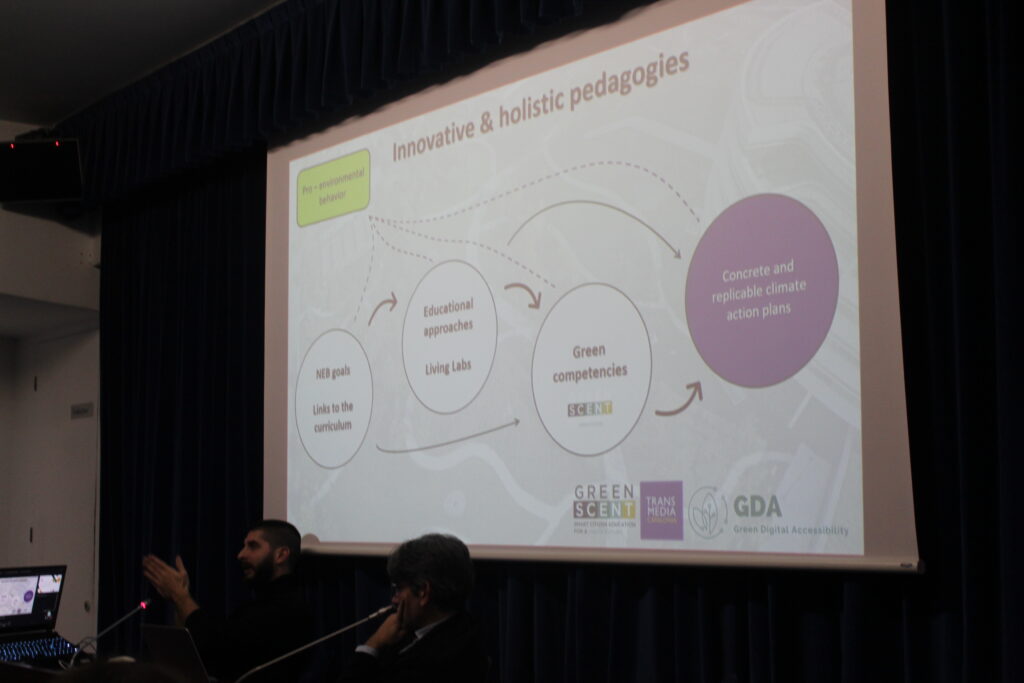Transforming schools to innovation hubs towards sustainability challenges
Loukas Katikas (EA) – 23rd of March 2023

In recent years, there has been a growing trend towards involving students learning on their own, where they are seen as partners and active contributors to the learning process. The aim is to make learning more engaging and relevant, by improving in parallel the pedagogies used and the learning outcomes. One approach that emphasizes collaboration is the Living Labs concept, which provides an environment for co-creation and collaborative research, where multiple users play an active role.
Thus, numerous efforts have been made to introduce such methodologies into the school environment and different educational settings. Among other projects and initiatives, the School As Living Labs (SALL) project proposes to transform schools into Living Labs. SALL adopts the concept of open schooling in science education, where schools become agents of community well-being by creating new partnerships with other local actors and addressing sustainability challenges relevant to them. Following the definition of the European Network of Living Labs (ENoLL) defining Living Labs as collaborative environments, School Living Labs should include openness, continuity, empowerment, realism, and spontaneity. These principles emphasize the importance of involving students and the school community in the innovation process, establishing long-lasting relationships between the schools, the local communities and different societal actors.
Linking the Living Labs to sustainability competencies and the GreenSCENT’s ‘Multidisciplinary European Competence Framework – GreenComp’, such concepts offer opportunities for students and citizens to gain hands-on experience in real-life settings and develop skills such as critical thinking, problem-solving, futures thinking and communication. By working with stakeholders from different sectors and disciplines, they can also develop cross-cutting competencies such as interdisciplinary thinking and systems thinking, which are essential for understanding complex sustainability challenges. To this end, Living Labs offer a unique opportunity for the participants to engage with real-world problems and contribute to developing more sustainable solutions.
Following this pedagogical pathway, Ellinogermaniki Agogi in Greece, one of the piloting schools in the GreenSCENT project, is an example of how the Living Labs concept can be introduced through the Open Schooling approach and the co-design processes already established in the GreenSCENT project. During the years, the school is testing these methodologies in numerous activities, for both primary and secondary school levels, where the students work on projects related to Renewable Energy Sources, Sustainable Food Systems, Biomimicry and Nature-based Solutions, among others. All of these activities constitute the ultimate testbed for the school community to collaborate with a wide range of stakeholders such as researchers and experts, entrepreneurs and overall, the local community.
Therefore, it is essential for our schools to create new scenarios and lifestyles that help young people develop competencies that are necessary to face current and future challenges. One way to do this is through design-based participatory processes that offer spaces for experimentation, peer interaction, and the exploration of diverse identities and possible futures. What should we always consider? That education plays a pivotal role in this transition, offering students unique experiences that build knowledge, skills, and awareness of their social, economic, and environmental responsibilities.
Stay tuned for more activities and inspiration here:
Ellinogermaniki Agogi (http://www.ea.gr/ea/index.asp?lag=en)
NBS EduWORLD (https://nbseduworld.eu/)
SALL (https://www.schoolsaslivinglabs.eu/)
